#for reading in class.
Text
every week we have to wait between new pjo episodes is like reliving the year between mark of athena and house of hades. except this time we’re ten years older and still haven’t forgiven rick for that author’s note💙
#if you were there for that year you’re a real one💙🩵💙#and when I say that I mean it because I think that year alone I reread the entire series like four or five times. I remember in eighth grade#house of hades came out and when I brought it to school the next day my Spanish teacher took it away from me#for reading in class.#this has gotten me to reread the series again after years of not having the attention span to read.#as usual percy changes my brain chemistry what else is new#percy jackson#pjo#pjo series#pjo tv show#rick riordan#percy jackon and the olympians#percy jackson and the olympians#annabeth chase#the lightning thief#tlt#pjo s1#pjo spoilers#heroes of olympus#my post
229 notes
·
View notes
Text

I simply don't think that's true eBooks.com but thank you anyway
#i love getting automated emails from book stores#about authors who have been dead for decades ajdbfkdjdj#i had to read nietzsche for my existentialism class. god what a pretentious dude
74K notes
·
View notes
Text
another cool thing is when you devour a book over the course of a handful of hours and it fucks you up and you just have to lie on the couch feeling like your brain went swimming for too long & only just came up from under the water. art is so good
#musings#i missed reading things…#more specifically. things not for class#things i don’t have to write essays on. those things
21K notes
·
View notes
Text
Audio books but it’s Michael Sheen reading books as Aziraphale and sometimes you hear David Tennant shouting something obnoxious as Crowley.
#good omens#good omens fandom#innefable husbands#good omens 2#aziraphale#aziraphale good omens#crowley good omens#I just want Aziraphale to read Plutarch’s Lives to me for my homework#actually I need him to read to me when my brain doesn’t understand the book#history & English classes but Aziraphale is the teacher#i’m going insane#bonesiscrazy#david tennant#michael sheen
10K notes
·
View notes
Text
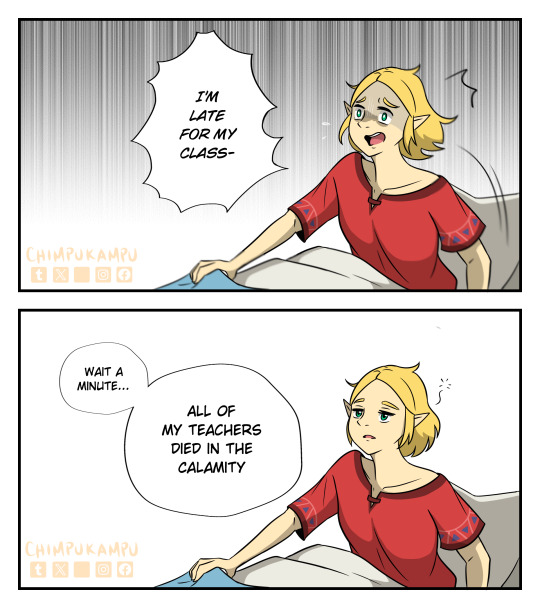
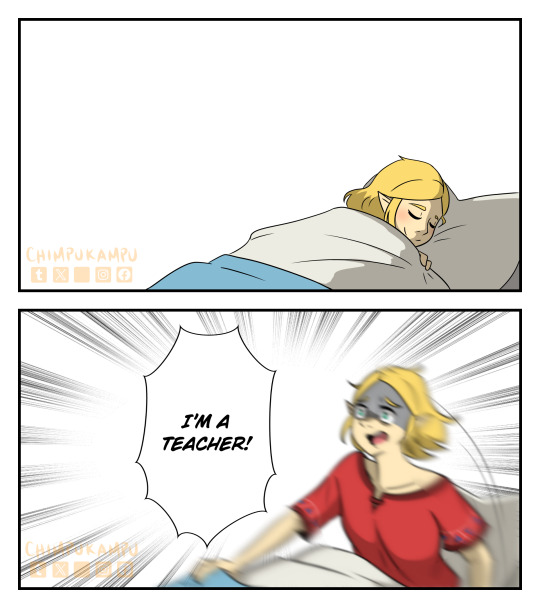
Miss Zelda can be forgetful sometimes
#totk#tears of the kingdom#totk zelda#this can be read as Pre-Upheaval#or Post-Upheaval where Professor Link temporarily took over Miss Zelda's class#so she can have her beauty rest#it's not easy to be a Princess and a full-time scholar at the same time#this is my 2nd time to use this meme but 1st for this fandom#loz#legend of zelda#totk art#loz art#my art#my comics#zelda
7K notes
·
View notes
Text
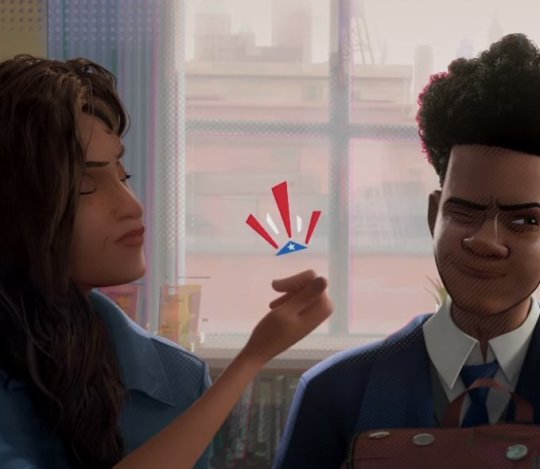
The Puerto Rican flag showing up when Rio snaps at Miles for getting a B in Spanish is such a fun little example of the incredible attention to detail in this movie
#across the spiderverse#atsv#miles morales#rio morales#my post#i am going to be absolutely FERAL when this movie comes out#spiderverse#I relate to miles a lot here. like i can read/write/speak etc in spanish but i don't do any work which is why i have a D in class rn#also some of those old castillian texts are hard as fuck my god-
17K notes
·
View notes
Text
it's so great that in greek tragedy there are only three paradigms for a woman leaving her house (her wedding, her funeral, and maenadic rites) and they're all kind of the same thing also
#this is very much entirely in the realm of the cultural imaginary#in real life ancient greek women (of all classes) did indeed leave their houses for a wide variety of reasons apart from these#but tragedy doesn't acknowledge them and instead suggests a world in which these are the only three legitimate reasons a woman leaves home#and thus tries to understand everything else in terms of these three paradigms#mine#reading
3K notes
·
View notes
Note
Thank you for defending Nazis. They're just little guys. Just misunderstood, with genuine grievances. I noticed you accidentally forgot to defend child rapists. Dumb commies like you are all the same 🙄
Piss on the poor! Also I'm not a commie and never claimed to be one.
#anyway 'Germany was hurting after WWI which allowed Hitler to rise to power'#and 'antisemitism was escalating at an alarming rate which created a very dangerous situation for Europe's Jewish population'#and 'by leaning into the antisemitism that already existed in Germany at the time Hitler was able to rapidly radicalize Germany's population#are all just like. history. ever read a world history textbook or did you sleep all through your history classes?#case in point if you're not able to identify why or how things got that bad then you're doomed to follow the same path
5K notes
·
View notes
Text
have always hated when people are like "stories are supposed to crush u👿" "media is supposed to comfort u☺️" why are there people trying to prescribe art. something famously known for its very consistent style format background intent and audience
#i read a thing for annotation howework for a language arts class in high school about how good art makes you feel depressed or something#and i got so angry i annotated so much i ran out of space and had to write on the back of the page about how ridiculous of a thing it was#to say
6K notes
·
View notes
Text
You’re Lucky You Have a House, Peasant!
A history of company towns
by Joyce Rice and Kevin Moore
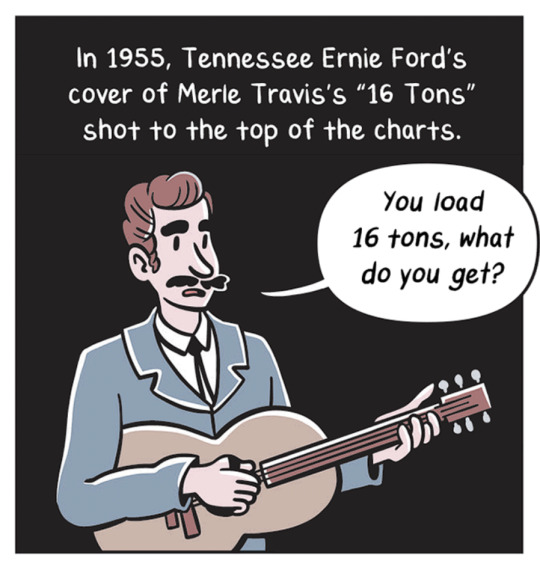
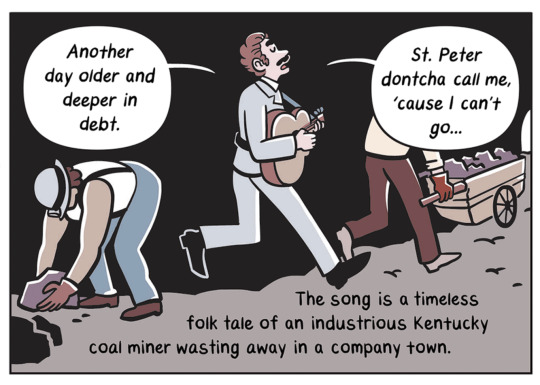
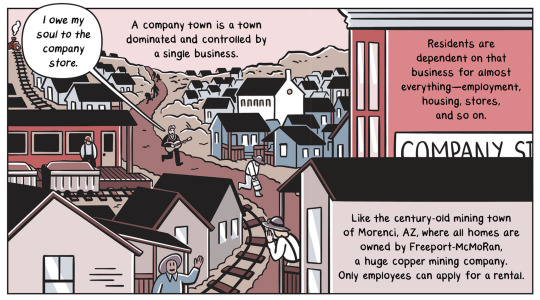
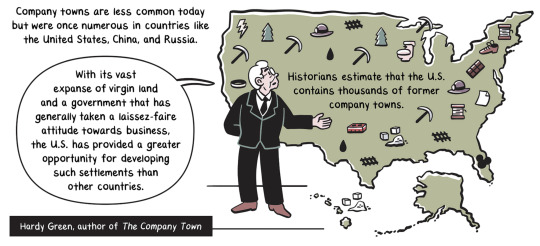
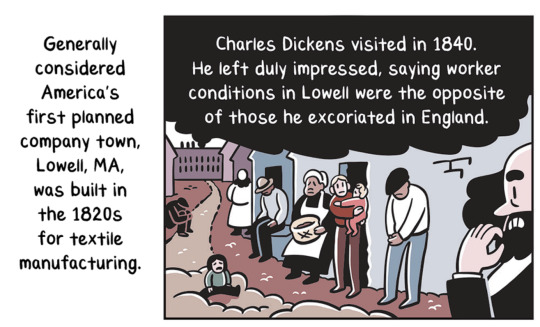
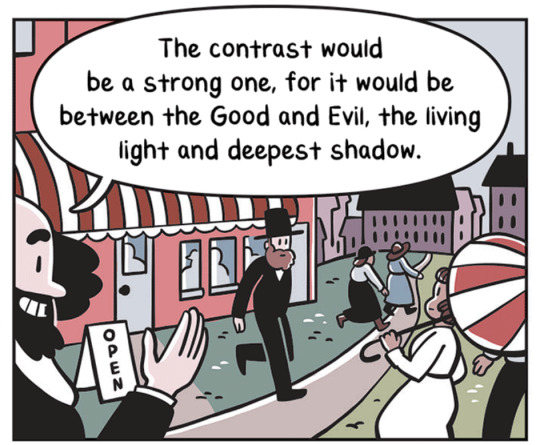
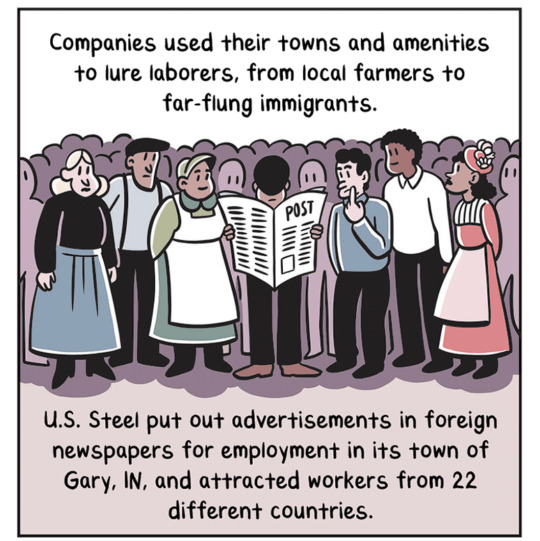

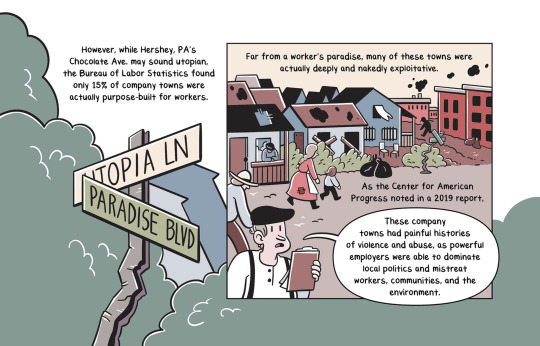
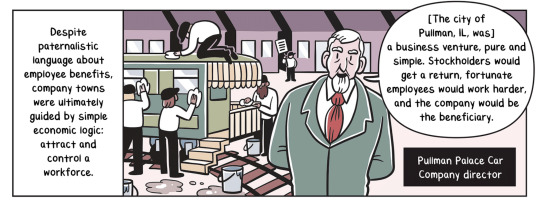

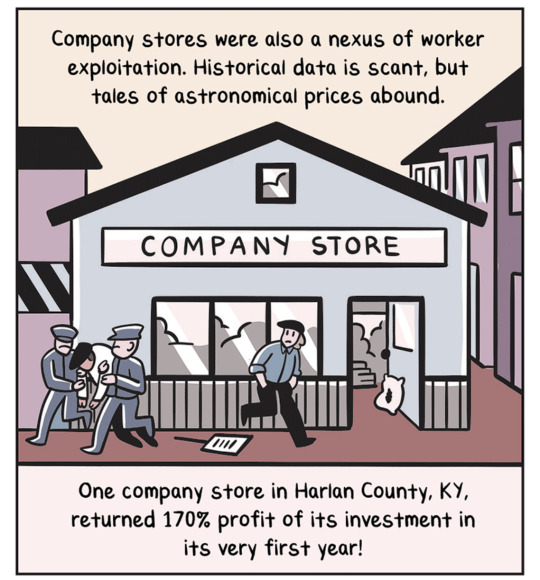
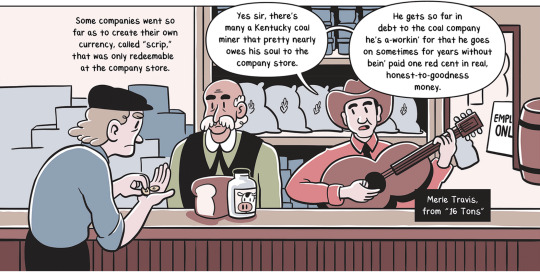
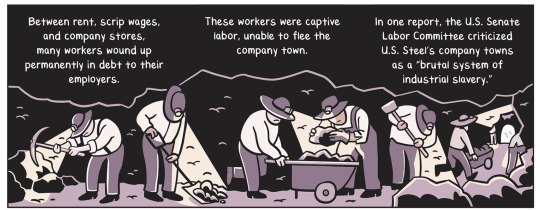

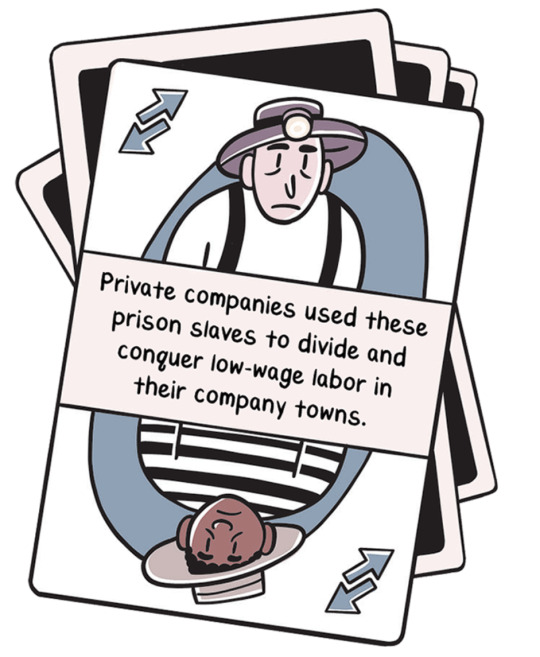
(Continue Reading)
TheNib.com
@thenib
#politics#the left#the nib#comic#webcomic#labor#Labor Unions#organized labor#history#capitalism#economic inequality#oppression#poverty#working class#long post#long reads
14K notes
·
View notes
Text
Pigeons are doves. They are rock doves, and I wonder if we began to call them that if people would hesitate to hate them, as doves have that history as messengers of peace. It is true that in my neighborhood nobody hates the mourning doves, dusky and elegant with wings that squeak as if they flap on rusty hinges. They roost on the wires like little Audrey Hepburns, while the pigeons troll the ground, tough and fat, some of them look like they should be smoking cigarettes. They look poor and banged up, like they could kick the mourning doves’ asses but are wise to the divide-and-conquer tactics we use on one another, so they coo wearily at the mourning doves and waddle forth in search of scavenged delights. What you may not know is when you call a pigeon “a rat with wings” you have given it a compliment. The only thing a rat lacks is a pair of wings to lift it, so you have named the pigeon perfectly. When you say to me, “I hate pigeons,” I want to ask you who else you hate. It makes me suspicious.
I once met a girl who was so proud to have hit such a bird on her bicycle, I swear, I thought that it was me she hit. I felt her handlebars in my stomach and now it is your job to feel it also. The pigeons are birds, they are doves. They are the nature of the city and the ones who no one loves. When people say they hate pigeons, I want to ask them if they hate themselves, too. Does it prick the well of your loathing? Do they make you feel dirty and ashamed? Are you embarrassed about how little or how much you have, for how you have had to hustle? Being dirty is not a problem for the pigeon. You can ask it, “How do you feel about having the city coating your feathers, having the streets gunked up in the crease of your eye?” and the pigeon would say, “Not a problem.” You will now stop blaming the pigeon. It is not the pigeon’s fault. The pigeon was once a dove, and then we built our filthy empire up around it, came to hate it for simply thriving in the midst our decay, came to hate it for not dying. The pigeon is your ally. They are chameleons, gray as the concrete they troll for scraps, at night they huddle and sing like cats. Their necks are glistening, iridescent as an oil-slick rainbow, they mate for life, and they fly.
Michelle Tea, Against Memoir. [emphasis mine]
28K notes
·
View notes
Text
My father was a talker and a storyteller. Because of this, there was no time when we, his children, did not know we were Palestinian. The stories I remember about his boyhood in the 1930s and early 1940s were nostalgic, both comic and bitter. But there were more political stories that began to teach us what it had meant to be Palestinian under the British Mandate. According to my father, people were barely aware they were on the eve of disastrous events that would make them refugees. They did not realize that the Zionists, not the British, were their real adversaries.
Yet, while I was growing up, I don’t recall hearing his stories of 1948, the last months before the fall of his hometown, Jaffa. Were we too young to be told? Did it not mean anything to children who had never seen Jaffa? What happened when my father returned to Palestine was that his memories now became the guide to a living history and a real place. And he told the stories to me and to anyone who would listen.
Jaffa was the heart of my father’s Palestine. On the wall of his apartment in Ramallah when I came to stay in 2001 was a large sepia poster: a historic photograph of an Arab man staring wistfully out to sea with a large town in the background. At the top, in Arabic, it said, “Jaffa 1937.” On my first visit to Palestine to see him in 1993, I sensed the thrill he felt at having mastered the new situation. The good part was embracing and being embraced by the community he had found, whether in the West Bank or in various other parts of pre-1948 Palestine. The anxiety of being there was betrayed by his dry mouth and the beads of sweat on his forehead as he drove us around, approaching Israeli military checkpoints or getting lost because he couldn’t read Hebrew. For me, the landscape was familiar from Lebanon and Jordan, which I had known well growing up. The barren highways and the cities branded by Hebrew sounds and sights were menacing, though, especially when combined with the heavy presence of Israeli soldiers, reservists, and guns.
He was eager to show me and my small family the whole of Palestine, from Jerusalem to Bethlehem, Nablus to Nazareth, Jericho to ‘Akka. His tour of Jaffa, the same one, I was a little hurt to discover later, he gave to many others, was about claiming and reclaiming the city in which he had been born, the sea in which he had swum as a boy, and the home he had been forced to flee in 1948. On his own first visit in 1991, he’d asked friends to take him there. Initially he was disoriented. Most of the landmarks weren’t there. The neighborhood by the sea where he’d grown up had been razed by then, though twenty years earlier his brother had done what so many Palestinians have done and described: knocked on the door to find out which Jews—Russian, Moroccan, Yemeni, Polish—were now living in their old family homes. Suddenly, my father said he had spotted the Hasan Bek mosque where he had made the call to prayer as a boy. Bit by bit, circling more widely around the mosque, he began to find his way.
It was a former student of his who had made him rethink his refusal to go back. She often traveled to Israel and the Occupied Territories. He recalled that she had told him once, “Ibrahim, Palestine is still there.” He was happy, he said, to find this true. There is an image in one of Doris Lessing’s African Stories (1981) that has never left me. A young girl, a white settler living in southern Africa, looks out over the savanna and acacia trees and sees the large gnarled oak trees of her English fairytales. My father did the opposite. Where I, who never knew anything else, could see only the deep gouges in green hillsides made for Israeli settlements with garish red tile roofs, or miles and miles of highways criss-crossing the rocky landscape and claiming it with modern green signs in Hebrew and English, or non-native evergreen forests to hide razed villages, my father saw beyond, between and behind them to the familiar landscapes of his youth.
– Return to Half-Ruins: Father's and Daughters Memory and History in Palestine by Leila Abu-Lughod.
#newpad.txt#Palestine#I read this for a class and felt Abu-Lughods work is like... something folks need to read
1K notes
·
View notes
Text
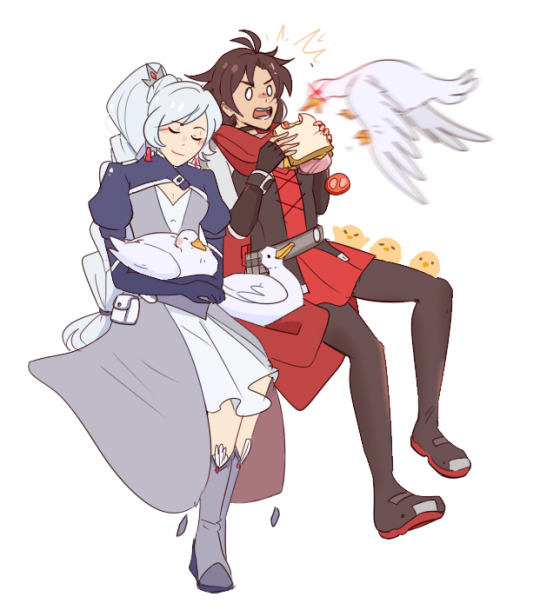
QUACK
#ruby rose#weiss schnee#whiterose#white rose#rwby#my art#lmao i've been so unproductive#a little inspired from that one video where weiss called ducks chickens lol#they are water chickens#also i read the timetable wrong for class today and ended up a bit late hjhhjh#it was like 5 mins something and i thought it starts a half hour later lmao#the timetable confuses me so much 😂#im glad i always get to school early being super late on the first day would be crappy#ducks chonky
2K notes
·
View notes
Text
i think it’s important everyone knows about the little roman girl who died at only five years and seven months old, and her grave reads "dum vixi, lusi" or "while i lived, i played"
#her epitaph actually has a much longer poem which contains this line#and it’s not like. stylistically high quality poetry either#which indicates this was not a poem someone was hired to write for the grave (as was a relatively common practice)#but instead written out of love by one of her family members#it’s twenty three lines of mostly correct dactylic hexameter#and it makes me bawl when i read it#we translated it in a latin class i took a few years ago and then wrote our own latin poems about our friends
1K notes
·
View notes
Text
I think one of the funniest things in ntn is how Palamedes and Camilla don't know Harrow well enough to know Nona isn't Harrow or they debate nature vs nurture for a lot of core characteristics such as liking bones or being a bitch. HOWEVER they know enough that Nona saying she isn't into redheads is considered an important piece of information. So the question is, how obvious was Harrow's crush on Gideon at Canaan House to everyone but Gideon? How much of team 69's time together was Harrow and Gideon bicker-whispering to each other while Palamedes and Camilla take bets on if those two fucking would make it better or make it worse?
#alright last goof off before i have to go back to reading for class 🫡#tlt#the locked tomb#nona the ninth#nona the ninth spoilers#griddlehark
2K notes
·
View notes
Text


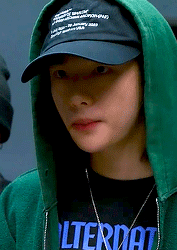
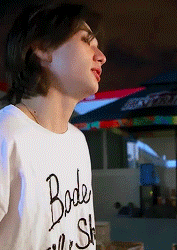
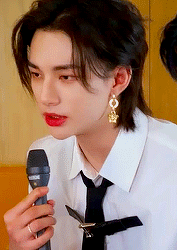

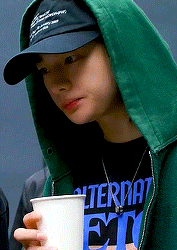

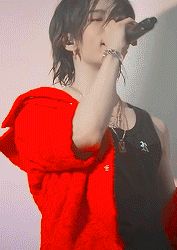
HYUNJIN | LOLLAPALOOZA PARIS 2023: DOCUSERIES
#hwang hyunjin#stray kids#hyunjin#bystay#createskz#malegroupsnet#a9gifs#flashing tw#*gif#*ccarly#*hyunjin#*carly:hyunjin#actually kinda like this set isn't that crazy.#fourth gif causing me major problems lowkey#i should do more reading for my psych class now zzzzz#*hits
1K notes
·
View notes